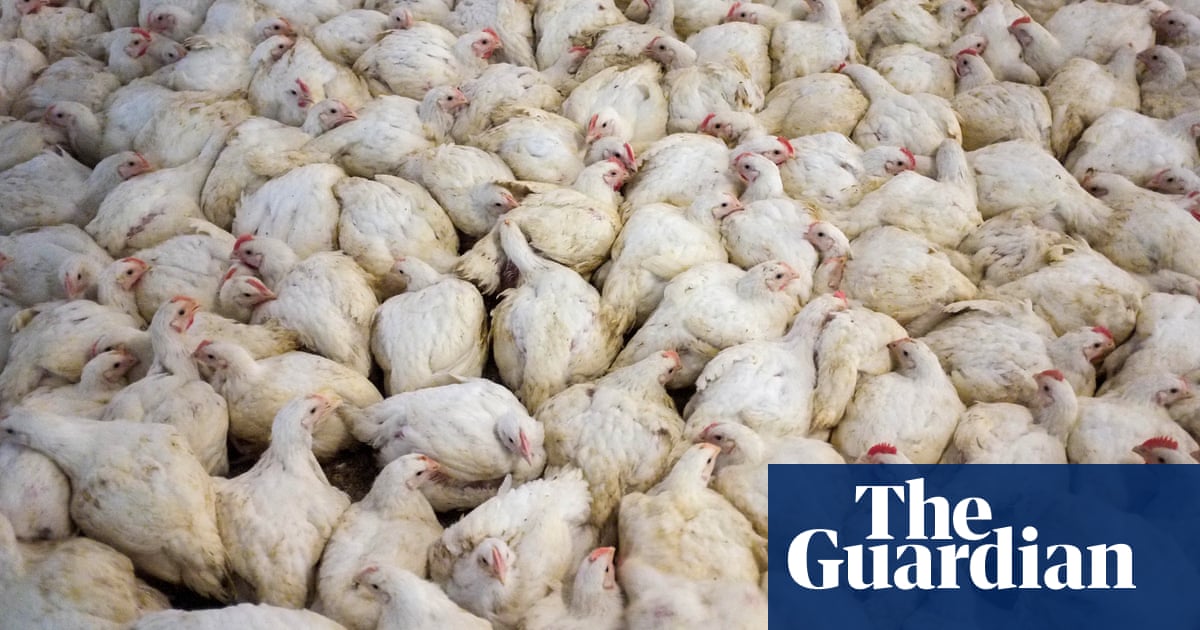Small farms and Black farmers are going out of business, while corporate-controlled farms are booming, raking in subsidies
Record numbers of American farms are going out of business with small farms and Black farmers the hardest hit – again, according to the 2022 agriculture census, a comprehensive snapshot of the state of America’s farms and farmers published every five years by the Department of Agriculture (USDA). Yet industrial factory farms rearing thousands of livestock in confinement have further expanded into rural America, acquiring smaller farms, raking in taxpayer subsidies and generating environmental harms.
The agriculture census is a mammoth data collection effort involving more than a million farmers, which tracks the number, size and types of farm across sectors, as well as the farmers and the financials – at the national, state and county levels. It provides insights into the impact – good and bad – of government programs on farmers, workers, land use, animals, waterways and the climate, and should inform future policy. The latest data set includes the Covid pandemic – an extraordinary time when global food prices, government farm subsidies and food insecurity all surged.



factory farming is far more economically viable - real, in person/family farming is really hard work. most people cant do it unless they’re born into a farming family & many choose not to continue. tractors, combines, etc are not cheap, and a bad year might ruin you financially. it’s far simpler and easier for everyone (in the supply chain) to get a corporation to do the farming.
The choice isn’t between multinational argocorp factory farms and suburban/urban neighborhoods each creating their own co-op and raising animals for food.
But setting that aside, your view of what’s economically viable completely skips over the significant negative health impacts on society that American factory farming practices produce, and how those costs are borne in other areas of the economy.
And this is all just health and economic concerns, we haven’t even touched the morality of the horrific conditions the animals are raised in, but frankly that just makes me really depressed so I’ll leave that alone.
not sure what you’re referring to in terms of health impacts to society regarding corporate farming - food is significantly more readily accessible and cheaper (and partially unhealthier) than at any point in history. a lot of the responsibility for that comes down to factory farming.
morality wise? free roaming/uncaged/whatever animals are still going to be killed in great numbers so that we can eat. people have been killing and eating other animals since before humanity evolved from Homo Erectus. the “quality of life” question is rather meaningless, animals that exist in the food supply chain were literally born so they could be turned into food. it’s criminally inefficient and not economically viable to raise 10 cows (or pigs or whatever) in the same space where you can raise 40. vertical integration will be the next big milestone, and it’ll be a big win for everyone involved.
The way you rationalize all of this is just gross, not sorry.
lol. not rationalization, just the cold hard truth.
And if someone bred humans to be slaves, these would be meant to be slaves, so it would actually be moral to keep them as slaves.
Solid logic. Abolishion was a mistake, guys!
You’ve convinced me.
Chattel slavery is moral, as long as we start with clones.
If they never know freedom, and they’re private property bred for the sole purpose of being slaves, it’s moral.
Do you want to start the change.org petition, or should I?
“Factory farming” refers specifically to industrial scale animal agriculture. Animal agriculture does not produce calories, it consumes them. It is a way of refining safe, cheap, sustainable plant products into harmful, expensive, addictive luxury products. Factory farming is not necessary to feed the country, it is a way of exploiting humans and non-human animals more effectively to grow capital.
then what terminology is used to refer to industrial scale agriculture in general? I’ve always used “factory farming” for corpo owned farms.
Yeah, well, your opinion clearly isn’t informed by much. But you’re awfully fucking confident about it, even think it is “cold hard truth”. Lurk moar.